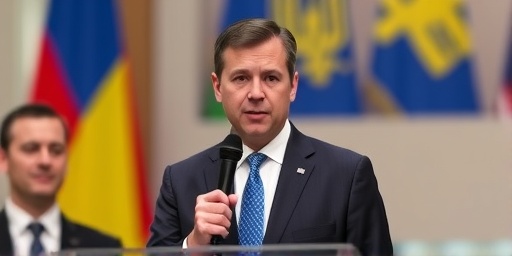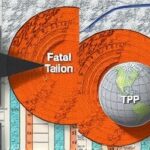In a stunning rebuke that underscores deepening cracks in Western unity, Ukraine‘s closest allies have firmly rejected a US-backed peace proposal, slamming it as a dangerous tilt toward Moscow’s interests. The move comes at a pivotal moment, with President Volodymyr Zelenskyy delivering a rousing speech commemorating Ukraine‘s historic resistance to Soviet oppression, signaling no willingness to compromise on sovereignty amid the ongoing war with Russia.
- European Leaders Unite in Criticism of US Peace Initiative
- Unpacking the US Peace Plan: Elements Sparking Global Outrage
- Zelenskyy’s Defiant Stance Echoes Ukraine’s Soviet Resistance Legacy
- Strains in Transatlantic Alliances: Russia’s Gains from Western Divisions
- Looking Ahead: Pathways to Resolution and the Future of Western Support
The proposal, floated during recent high-level talks in Washington, aimed to broker a ceasefire but has ignited fierce backlash from European leaders who argue it would legitimize Russian territorial grabs and weaken Kyiv’s position. As the conflict enters its third year, this rejection highlights the fragile balance of international relations, where support for Ukraine hangs in the thread of diverging strategic priorities.
European Leaders Unite in Criticism of US Peace Initiative
From Brussels to Berlin, voices across the European Union and NATO have risen in chorus against the US peace plan, viewing it as a premature concession that could embolden Russia. German Chancellor Olaf Scholz, in a pointed statement from the Bundestag, declared, ‘We cannot reward aggression with ambiguity; this plan risks undermining the very principles of international law that bind us.’ Scholz’s words echoed sentiments shared by French President Emmanuel Macron, who warned during a press conference in Paris that accepting such terms would signal a retreat from Europe’s commitment to Ukrainian sovereignty.
The European Union’s foreign policy chief, Josep Borrell, went further, labeling the proposal ‘fundamentally imbalanced’ in a briefing to MEPs. He highlighted how the plan’s emphasis on Ukraine’s neutrality and deferred discussions on occupied territories could effectively freeze Russia’s advances, including in Donbas and Crimea. This stance is not isolated; the United Kingdom’s Foreign Secretary has also voiced concerns, stating that London would withhold support for any initiative that does not include ironclad security guarantees for Kyiv.
Behind the rhetoric lies a web of strategic calculations. Since Russia’s full-scale invasion in February 2022, the EU has mobilized over €100 billion in aid to Ukraine, including military equipment and humanitarian support. Rejecting the US plan preserves this momentum, but it also strains transatlantic ties. Analysts point to recent polls showing 68% of Europeans favoring continued aid, per a Eurobarometer survey, as a key driver for this unified front.
NATO Secretary General Jens Stoltenberg, speaking at alliance headquarters in Brussels, emphasized the need for ‘coordinated resolve’. He noted that any peace effort must align with Ukraine’s red lines, such as full territorial restoration, to avoid fracturing the coalition that has provided Kyiv with advanced weaponry like Leopard tanks and HIMARS systems.
Unpacking the US Peace Plan: Elements Sparking Global Outrage
At the heart of the controversy is the US peace plan itself, a 15-point framework developed in consultations with think tanks and diplomats, which proposes a multi-phased approach to de-escalation. Key provisions include an immediate ceasefire along current frontlines, Ukraine’s commitment to non-alignment with NATO for a decade, and international mediation on territorial disputes without preconditions for Russian withdrawal from annexed regions.
Critics, including Ukrainian officials, argue these terms disproportionately favor Russia by codifying de facto control over 18% of Ukraine’s pre-2014 territory. A leaked draft, obtained by Western media outlets, reveals clauses for economic reconstruction funds tied to Moscow’s participation, potentially amounting to $50 billion in frozen Russian assets being redirected—a move seen as legitimizing Putin’s war economy.
US officials defend the plan as a pragmatic starting point, with State Department spokesperson Matthew Miller stating, ‘This is about ending the bloodshed, not dictating outcomes. Diplomacy requires compromise.’ However, the proposal’s roots trace back to bilateral talks between Washington and Beijing, incorporating elements of China’s 12-point peace initiative from February 2023, which Ukraine dismissed as pro-Russian propaganda.
Statistics underscore the stakes: The war has claimed over 500,000 military casualties on both sides, according to UN estimates, while displacing 6 million Ukrainians. Economically, Ukraine’s GDP has shrunk by 30% since 2022, reliant on $175 billion in international aid. Proponents of the plan cite war fatigue in the US, where a recent Pew Research poll shows 51% of Americans now support negotiations over continued funding.
Yet, for Ukraine, the plan evokes painful memories of the 2014 Minsk agreements, which failed to prevent escalation and are now derided as a blueprint for appeasement. Experts like Fiona Hill, former US National Security Council advisor, warn in a recent Atlantic Council report that such concessions could invite further aggression, not just in Ukraine but across Eastern Europe.
Zelenskyy’s Defiant Stance Echoes Ukraine’s Soviet Resistance Legacy
Amid the diplomatic storm, President Zelenskyy has emerged as the unyielding voice of Ukrainian resolve, using a national commemoration to rally both domestic and international support. On the anniversary of the 1932-33 Holodomor famine—engineered by Soviet authorities to crush Ukrainian nationalism—Zelenskyy addressed crowds in Kyiv’s Independence Square, drawing stark parallels to today’s invasion.
‘Just as our ancestors starved but never broke, we stand against this new empire of fear,’ Zelenskyy proclaimed, his voice carrying over the Dnipro River. The speech, broadcast live to millions, referenced the Holodomor’s death toll of up to 5 million, framing Russia’s war as a continuation of imperial oppression. This historical invocation is no mere rhetoric; it taps into Ukraine’s collective memory, where Soviet-era repressions fuel a fierce independence ethos.
Zelenskyy’s defiance extends to policy. In a virtual meeting with G7 leaders, he rejected the US plan outright, insisting on no negotiations without full Russian withdrawal. His administration has bolstered this position with military gains, including recent counteroffensives that recaptured villages near Kharkiv, aided by Western-supplied F-16 jets expected in 2024.
Public sentiment in Ukraine mirrors this resolve. A Kyiv International Institute of Sociology survey from last month found 82% of Ukrainians oppose territorial concessions, with trust in Zelenskyy holding steady at 65%. His personal story—from comedian to wartime leader—adds emotional weight, resonating globally through viral videos and UN addresses that have garnered billions of views.
Internationally, Zelenskyy’s approach has implications for international relations, positioning Ukraine as a frontline defender of democratic values. Allies like Poland, which borders Ukraine and remembers its own Soviet past, have amplified his message, with Prime Minister Mateusz Morawiecki pledging additional $2 billion in aid.
Strains in Transatlantic Alliances: Russia’s Gains from Western Divisions
The rejection of the US peace plan exposes fissures in the Western alliance, potentially handing Russia strategic advantages in the information war and on the battlefield. Moscow, through state media like RT, has seized on the discord, portraying it as evidence of faltering US leadership under President Biden. Kremlin spokesperson Dmitry Peskov smirked in a briefing, ‘The West’s disunity is their own undoing; we’re open to fair talks.’
In terms of international relations, this episode complicates NATO’s eastern flank dynamics. Eastern members like the Baltics and Romania, fearing Russian revanchism, have urged a harder line, with Lithuanian President Gitanas Nausėda calling the plan ‘a betrayal of Article 5 principles.’ Meanwhile, the US faces domestic pressures, including congressional debates over a $61 billion aid package stalled since October 2023.
Russia’s position remains intransigent, demanding recognition of annexed territories and Ukraine’s demilitarization—terms even more punitive than the US proposal. With its economy buoyed by oil revenues topping $300 billion annually despite sanctions, Moscow shows no signs of retreat, launching over 1,000 drone strikes in the past quarter alone.
Broader context includes shifting global alliances. India’s neutral stance and Brazil’s calls for mediation add layers to the geopolitical puzzle, while China’s economic ties with Russia—trade hitting $240 billion in 2023—undermine isolation efforts.
As the Ukraine conflict persists, the plan’s failure could accelerate hybrid threats, from cyberattacks to energy manipulations. US-Ukraine relations, once ironclad, now require mending, with upcoming summits in Brussels and Washington poised to test alliances.
Looking Ahead: Pathways to Resolution and the Future of Western Support
With allies’ rejection reshaping the diplomatic landscape, the path forward for Ukraine demands innovative approaches beyond the stalled US peace plan. Zelenskyy’s team is pushing for a ‘victory plan’ at the NATO summit in July 2024, seeking long-term security pacts akin to Israel’s with the US, potentially including troop commitments from willing partners.
International relations experts foresee a multipolar negotiation framework, involving the UN Security Council despite veto risks from Russia. Economic incentives, like accelerated EU accession for Ukraine, could counterbalance Russian leverage, with Brussels fast-tracking reforms that have seen Ukraine align 70% of its laws with EU standards since 2022.
For Russia, sustained pressure through sanctions—now targeting 1,200 entities—may force concessions, especially as its military suffers 1,200 daily casualties per British intelligence estimates. Yet, without unified Western action, the war risks prolongation, costing $400 billion annually in global economic fallout, per World Bank projections.
Zelenskyy’s unwavering stance inspires hope, but the coming months will determine if international relations can realign around justice or fracture under compromise’s weight. As Ukraine commemorates its resilient past, the world watches whether today’s allies will match that endurance in securing a just peace.








